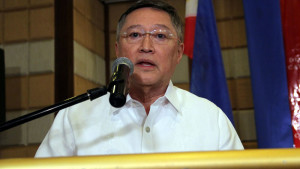A surge of funds from creditors into peso-denominated debt securities last month helped swing the balance of so-called “hot money” flows into positive territory at the end of the first quarter, according to the central bank.
Data from the Bangko Sentral ng Pilipinas showed a $1.3 billion inflow in the first week of March, which resulted in the balance of overseas portfolio investments — short-term money from abroad invested in stocks, bonds or the local money market — to report a $1.1 billion surplus for that month.
Without this large inflow, the balance of hot money will be in the negative for both March and the entire first quarter, meaning more investments were repatriated than came in.
According to the BSP, registered investments for the month of March 2018 amounted to $2.5 billion, more than double the $1 billion figure in February and 79.7 percent higher than the $1.4 billion a year ago.
About 50.6 percent of investments registered during the month were in other peso debt instruments, while 40.9 percent were in Philippine Stock Exchange-listed securities (pertaining mainly to holding firms, property companies, banks, food, beverage and tobacco firms, and utilities companies); the 8.5 percent balance went to peso government securities.
The Netherlands, the United Kingdom, the US, Norway, and Hong Kong were the top five investor countries for the month, with combined share to total at 85.2 percent.
Outflows for the month ($1.3 billion) were lower by 15.1 percent and 27.1 percent compared to those recorded in February 2018 ($1.6 billion) and a year ago ($1.8 billion).
The US continued to be the main destination of outflows, receiving 85.9 percent of total remittances.
On the overall, transactions for the month yielded net inflows of us $1.1 billion, a reversal from the net outflows recorded last month ($545 million) and in March 2017 ($460 million). Net inflows were noted for peso-denominated debt ($1.2 billion) and peso-denominated government securities ($122 million), while transactions for PSE-listed securities resulted in net outflows of $240 million.
Registration of inward foreign investments with the BSP is optional under the liberalized rules on foreign exchange transactions. The issuance of a BSP registration document entitles the investor or his representative to buy foreign exchange from authorized agent banks or their subsidiaries and affiliates for repatriation of capital and remittance of earnings that accrue on the registered investment.


